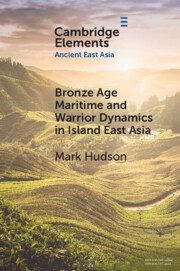1 results

Bronze Age Maritime and Warrior Dynamics in Island East Asia
-
- Published online:
- 25 March 2022
- Print publication:
- 07 July 2022
-
- Element
-
- You have access
- Open access
- HTML
- Export citation

